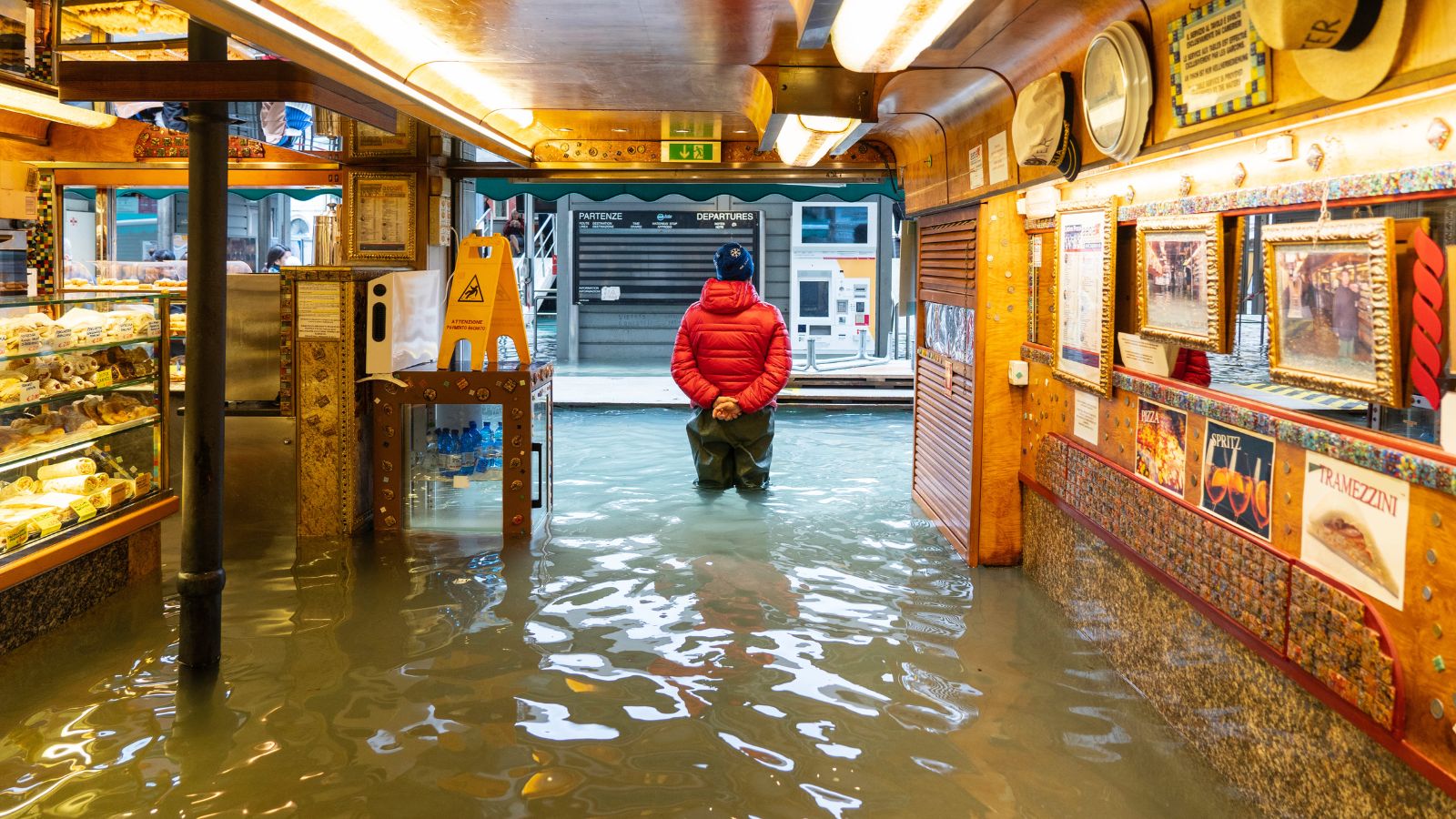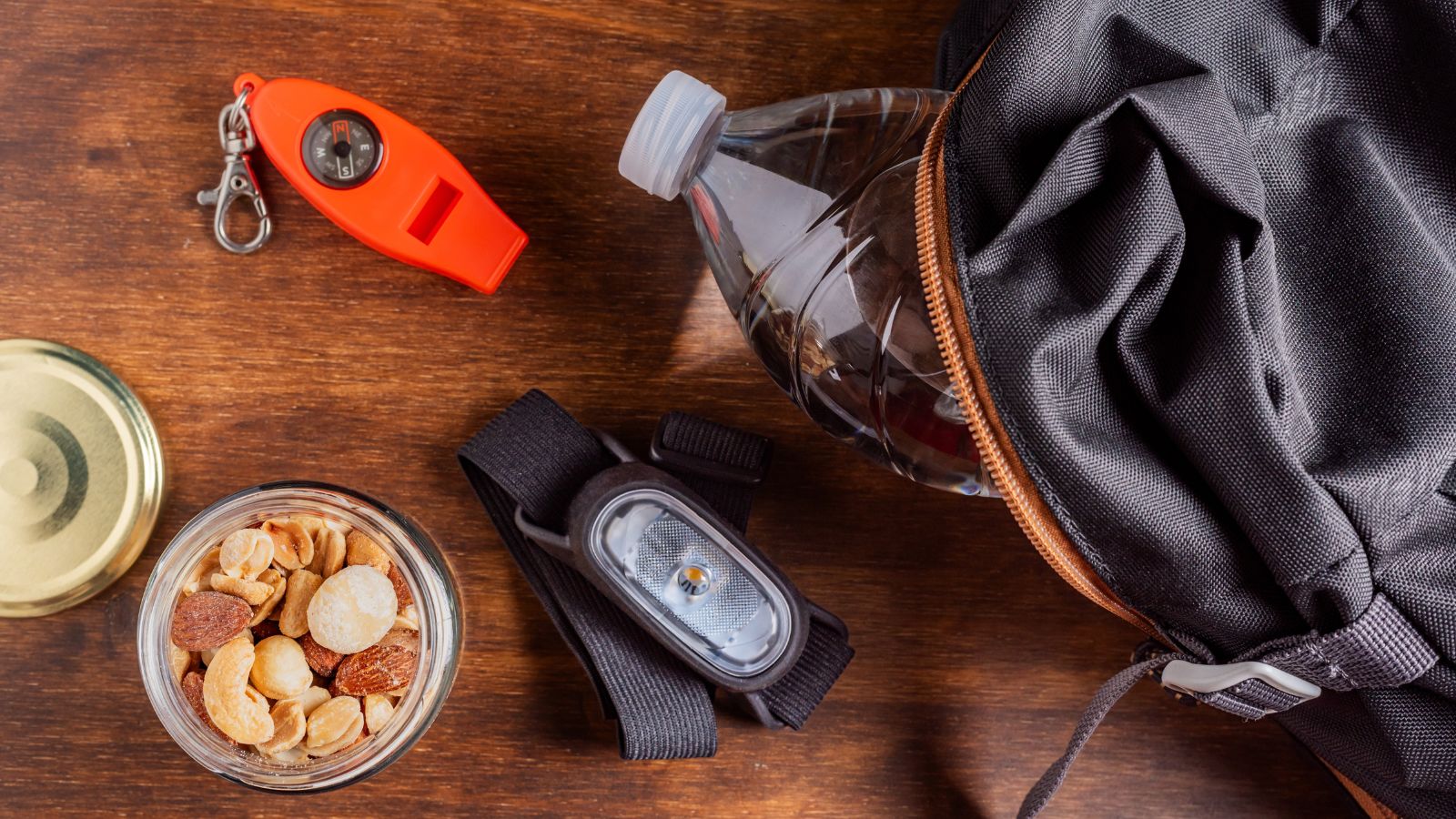Severe weather can hit out of nowhere, catching us off guard, which means staying informed and taking steps to protect your home, belongings, and loved ones is essential. Here are 18 simple and effective ways to keep yourself safe from storms, heavy weather, and flooding.
Create an Emergency Kit

You should put together an emergency kit with essentials like water, snacks that won’t go bad, medications, a flashlight, batteries, and important papers. Make sure it’s easy to reach and that everyone in the house knows where it is. A good emergency kit can really help during storms and bad weather.
Stay Informed with Weather Updates

The National Weather Service writes, “Check the forecast regularly to see if you’re at risk for severe weather. Listen to local news or an NOAA Weather Radio to stay informed about severe thunderstorm watches and warnings.” Staying informed lets you make smart choices and take the right steps before bad weather arrives.
Develop a Family Emergency Plan

Don’t overlook the importance of creating a family emergency plan for severe weather. Decide where to meet, whom to contact, and how to evacuate. Regularly practice the plan so everyone knows what to do and can act fast in an emergency, making sure your family stays safe when it really matters.
Secure Outdoor Items

It’s often said that before a storm hits, make sure to bring in or secure outdoor items like furniture, grills, and garden tools. If left outside, these items can turn into dangerous projectiles in strong winds, risking injury and damage. Taking this simple step helps keep you and your property safe during bad weather.
Reinforce Windows and Doors

If you know the weather is going to be particularly bad, then put up storm shutters or plywood on your windows and doors to keep them safe from strong winds and debris. Stronger windows and doors help prevent glass from breaking and make your home sturdier.
Clear Gutters and Drains

You can do something so simple, such as making sure to clean your gutters and drains regularly, which keeps water flowing smoothly. Clogged gutters can cause water to build up and even lead to flooding around your house. Keeping them clear helps manage rainwater and lowers the chances of water damage when storms hit.
Elevate Electrical Appliances

Did you know that to protect your electrical appliances from flooding, you can move them to higher ground or put them on raised platforms? Floods can seriously damage electrical systems and create safety hazards. Keeping your devices off the ground helps prevent water damage and makes it easier to get back on track after a flood.
Install a Sump Pump

You might want to think about putting a sump pump in your basement or any areas that might flood. These pumps help get rid of standing water and protect your home from damage. Keeping your sump pump well-maintained means it will work properly when you need it, giving you peace of mind during heavy rains.
Seal Cracks and Openings

Think about doing some maintenance and checking your home for cracks and openings that could let water in during storms. Use sealant to fill in gaps around walls, windows, and doors. Sealing up your home properly helps keep water out and lowers the chances of water damage inside when the weather gets really bad.
Trim Trees and Shrubs

There’s no denying that keeping your trees and shrubs in shape by trimming away dead or weak branches will help in case they fall during a storm. Healthy trees are less likely to damage your home or power lines. Regular pruning makes them stronger and better able to withstand strong winds and heavy rain.
Install Flood Barriers

You can simply use flood barriers or sandbags to protect your home from rising water levels. Flood barriers can be placed around doors, windows, and other entry points to prevent water from entering. These barriers provide a practical solution for mitigating flood damage and keeping your home dry during severe weather.
Check Roof Integrity

Try to regularly inspect your roof for missing shingles, leaks, or damage. A sturdy roof is crucial for protecting your home during storms. Addressing any issues promptly ensures that your roof can withstand severe weather conditions and minimizes the risk of water entering your home.
Maintain a Safe Room

It’s imperative to designate a safe room in your home where family members can take shelter during severe weather. The safe room should be stocked with emergency supplies and have reinforced walls and ceilings. Having a dedicated safe space provides peace of mind and enhances safety during storms.
Back Up Important Documents

You may be aware that you should store important documents like insurance policies, identification, and medical records in waterproof containers or digitally back them up. Ensuring these documents are protected helps in the recovery process after severe weather events. Quick access to essential documents can be critical during emergencies.
Invest in Weather-Resistant Materials

The truth is, you should use weather-resistant materials for home repairs and renovations to enhance durability. Materials like impact-resistant windows and reinforced roofing can withstand harsh weather conditions better. Investing in these materials can reduce long-term damage and provide better protection during severe storms.
Know Your Insurance Coverage

Regularly review your insurance policy to understand what is covered in the event of storms, severe weather, and flooding. Ensure you have adequate coverage for your home and belongings. Knowing your policy details helps in making informed decisions and ensures you are prepared for potential financial impacts.
Prepare for Power Outages

Keep a supply of batteries, a portable charger, and alternative light sources like lanterns or candles. Power outages are common during severe weather, and being prepared ensures you have the necessary lighting and can stay connected. Preparedness for power outages enhances safety and comfort during storms.
Stay Away from Floodwaters

It’s no surprise that you should avoid walking or driving through floodwaters, as they can be deeper and more dangerous than they appear. Floodwaters may contain debris, contaminants, and strong currents. Staying clear of floodwaters protects your safety and reduces the risk of injury or illness during flooding events.
Read More: 15 Ways To Tell If Someone Is Not a Good Person

While it’s important to avoid quick judgments, certain behaviors can be strong indicators of a person’s character. Here are 15 ways to discern if someone might be a bad influence or possess harmful traits.
15 Ways To Tell If Someone Is Not a Good Person
Why People Aren’t Religious Anymore: 15 Simple Reasons

As society evolves, so does our approach to spirituality. This article looks at the subtle yet profound shift from traditional religious adherence to a more personal, evidence-based belief system.
Why People Aren’t Religious Anymore: 15 Simple Reasons
17 Things That Used to Be Highly Respected But Aren’t Anymore

Many things in the world used to be well-respected before turning into complete jokes for various reasons. An internet survey recently asked people, “What is something that was once highly respected but is now a complete joke?” Here are the top 20 answers:
17 Things That Used to Be Highly Respected But Aren’t Anymore
